‘No miracle recipe’: new freelance interpreters not adding capacity to House, Senate services as injuries, attrition affect hours available
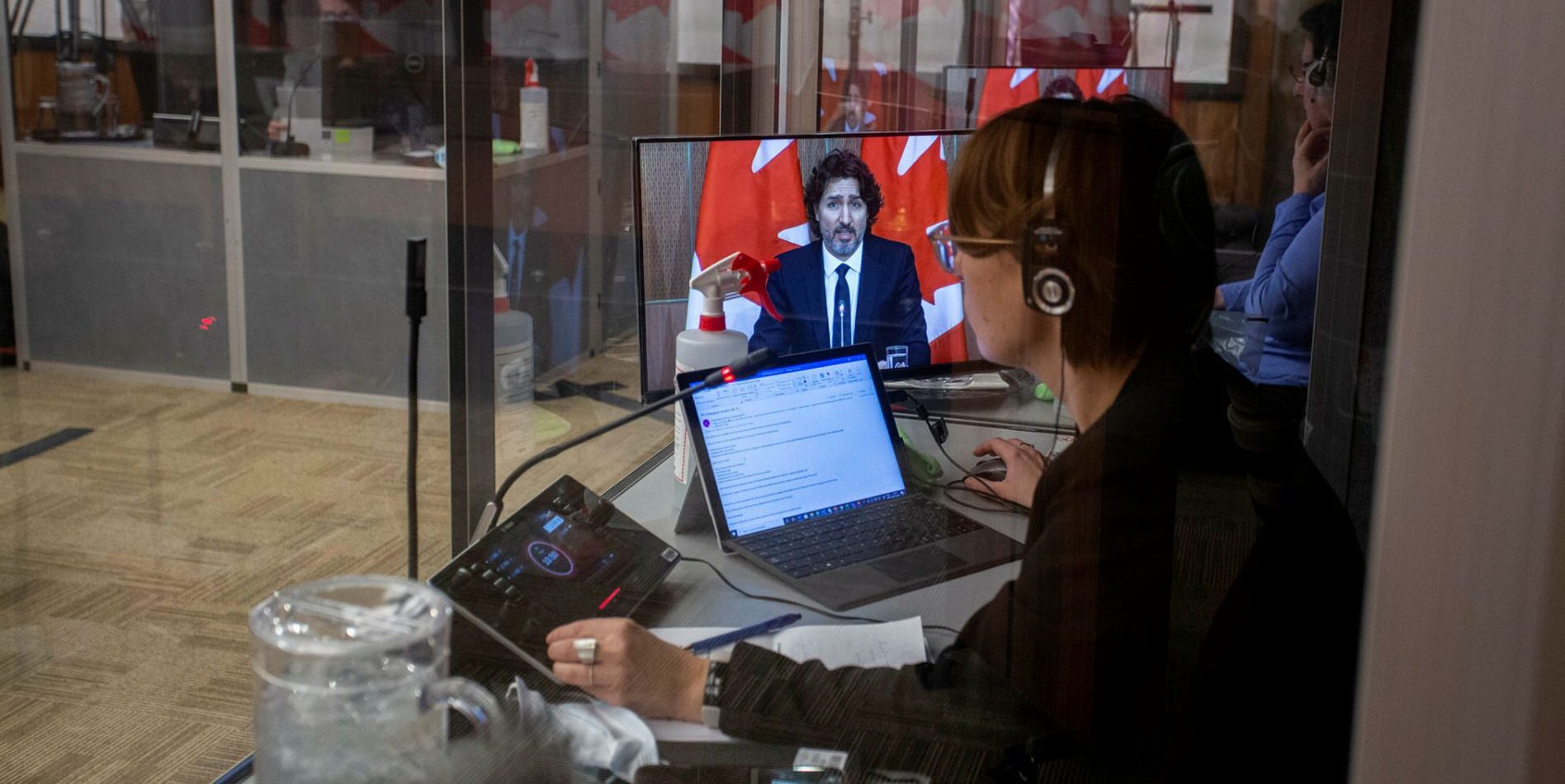
The Translation Bureau is revisiting some protocols for parliamentary interpreters to address ongoing injury concerns as the already-stretched bilingual service continues to struggle from staffing shortages, despite new freelancers being added to the roster early this year.
At a Feb. 16 meeting, members of the Commons Board of Internal Economy learned that 10 people passed the annual accreditation exam in November, but adding their hours to the mix wouldn’t ultimately increase the services to the House or Senate.
Speaking to the board after seven weeks on the job, the Translation Bureau’s new CEO Dominic Laporte reassured MPs his priority would be to “multiply the efforts to ensure the health and safety of interpreters on the one hand, and to improve interpretation capacity on the other.
“Their arrival does not in itself present an increase in our capacity, given the numbers of injured interpreters and departures, but they are still welcome reinforcement,” he said, telling BOIE members the new hires are finishing up their security clearance and soon should be added to the mix.
Laporte also informed MPs that a new pilot project to broaden services to the House of Commons from interpreters outside of Ottawa was not yet ready, with the projected target date in mid-April.
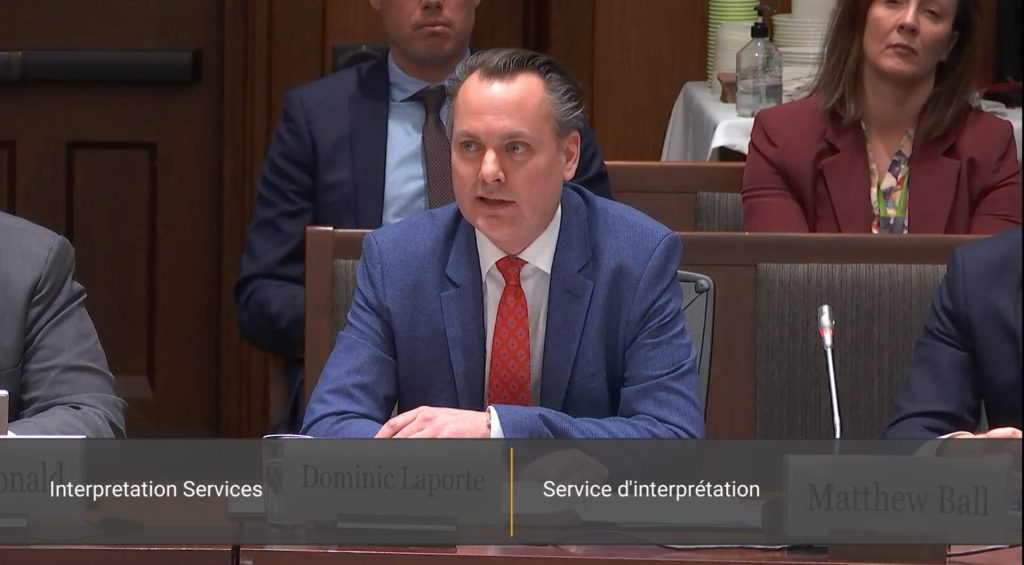
Since the adoption of hybrid proceedings in 2020, interpreters have repeatedly reported workplace challenges and increased rates of injuries with the model as the volume of virtual participants magnifies the inferior sound quality and its impact, from headaches to tinnitus to acoustic shocks. Now, three years in, they still complain that witnesses and MPs are not properly using the equipment provided to protect interpreters, who provide an essential service to bring bilingual products to Parliament. In October, a Hill interpreter was hospitalized for “acoustic shock.”
Speaking in French, Laporte told MPs there would be “no miracle recipe to solve everything,” but he planned to take the necessary time to improve services. He told MPs that he met with interpreters and was “deeply moved by their distress” when hearing about the effect workplace-related injuries are having on their daily lives.
The Translation Bureau said it would revisit some protocols taken up during the pandemic to expedite the process and ensure the widest availability of services. For example, at one point, interpreters were involved in sound tests, but they were removed in order to free them up for the most amount of translation time.
“Now we’re revisiting protocols to see to it so they participate again,” said Matthew Ball, vice-president of service to Parliament and Interpretation at the Translation Bureau.
As of Feb. 6, other efforts to improve safety include instructing interpreters not to translate participants who do not use an appropriate microphone. Soon, there will also be random tests on workstation and the House and Senate committee rooms to make sure they comply. Over the pandemic, the House and Senate have reported a number of steps to improve sound quality and protect interpreters, including issuing to all Parliamentarians ISO-compliant microphone headsets, which they’re instructed to use during virtual proceedings. House committee clerks have also sent purchased, approved microphone headsets to all witnesses appearing virtually. The Senate previously told The Hill Times it provides witnesses with a list of approved headsets, which it recommends they buy themselves and submit a claim for reimbursement. Meanwhile, the Translation Bureau has adopted its own measure, including reducing shifts from six to four hours each.
The board previously heard of the approximately 50 staff interpreters supporting Parliament, the bureau has also turned to about 10 interpreters to help with part-time work to allow for more rest periods. But, the number of freelance interpreters on its roster has dropped from 76 in 2019-20 to 56 in early 2022, with retention being a challenge, including more than a dozen retiring in the last three years.
In November, the Translation Bureau held its annual accreditation exam. Public Services and Procurement Canada previously told The Hill Times 69 people took the test, eight of whom were unaccredited staff (new graduates, etc.) already employed by the bureau for training ahead of sitting the exam. The BOIE heard on Feb. 16 that of the 40 who lived in Canada, 10 passed the exam and chose to stay on as freelancers instead of on staff—a ratio NDP House Leader Peter Julian (New Westminster-Burnaby, B.C.) called a “high failure rate” and asked how it could be improved.
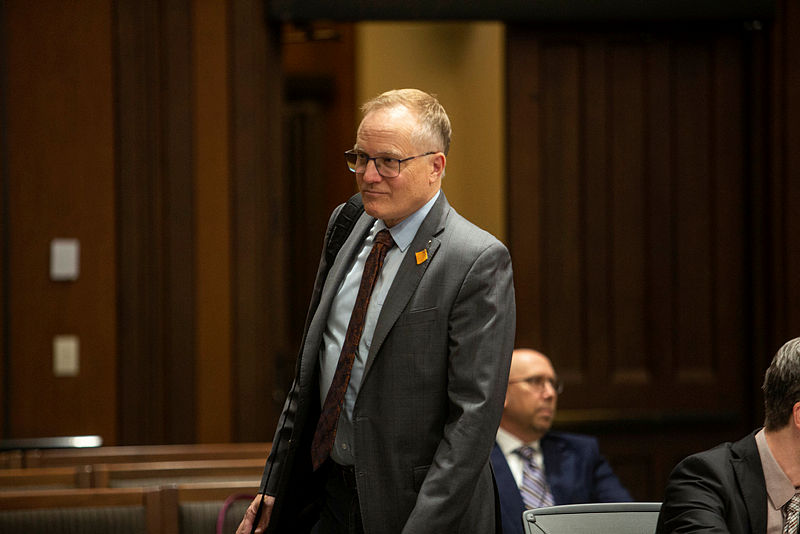
Laporte said those numbers are still good, which lines up with data previously provided by the bureau to The Hill Times. In 2021, of the 52 individuals who sat that year’s accreditation exam, nine passed, including two already working as interns with the bureau. Of the other seven, three opted not to offer their services, and the rest are now either on staff or freelancers. The exam didn’t take place in 2020 due to the pandemic, and in 2019, 44 people sat the exam and two passed, only one of whom accepted a subsequent employment offer.
“I know it appears low, but I want to put the emphasis on the rigor that goes into accrediting an interpreter. We need to have the best,” said Laporte, noting the bureau helped with pre-exam training and hopes to offer two tests a year to increase the numbers over time. “The quality standards need to be maintained. And I think this is something that the Translation Bureau will never lower.”
While lowering standards is not in question, Julian said the results suggest the problem can’t be fixed with the current approach.
“I’m not talking about a magic wand either. But we have a problem. We have a shortage of qualified interpreters,” he said.
Despite the new accredited interpreters, Bloc Québécois Whip Claude DeBellefeuille (Salaberry-Suroît, Que.) stressed capacity has not improved.
“We’re actually not adding persons, we’re adding shifts,” said DeBellefeuille, clarifying that this translates to eight shifts of two hours a day of interpretation.
In this case, Laporte said that though there are new freelancers, attrition means there are no new hours of interpretation available, and only the status quo has been saved. He said the office continues to work with the House administration on providing interpreters based outside of Ottawa.
“We’re not in the situation where we can reallocate resources to either the Senate or the House,” Laporte said, but said when the pilot project arrives to permit outside interpreters, it would add time to cover more House-related “events.”
In June 2022, the House launched a pilot project to test the use of remote and external interpreters not accredited by the Translation Bureau, citing the bureau’s inability to meet the demand for interpretation services. The International Association of Conference Interpreters Canada, and Conservatives, have criticized this pilot for threatening the quality of bilingualism.
When pressed to give an estimated time, Ian McDonald, with the House Committees and Legislative Services Directorate, said the target date for launching is mid-April when the House returns after April 17, 2023.
“But that will depend on other steps in the process. We want to be sure everything proceeds without any problems because interruptions in committees do have a bad impact on parliamentary work,” he said, speaking in French.
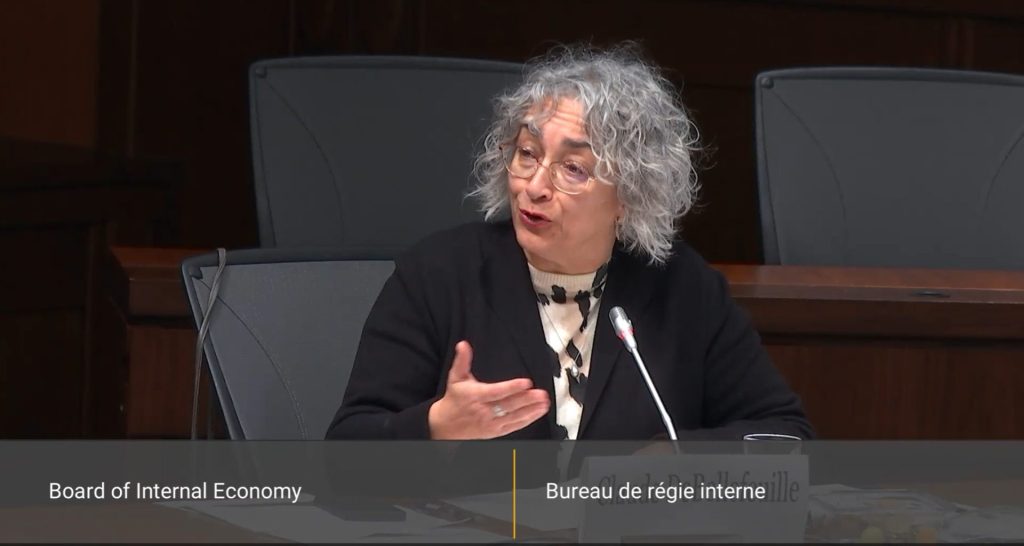
More than an hour into the meeting, Government House Leader Mark Holland (Ajax, Ont.) noted that is a common occurrence, and the issue now takes up more than half of the Board’s time.
“It’s exceptionally important that those services are available and that we are able to conduct our business in both languages. But I am anxious to find a way, hopefully, to not have this become a one-hour standing item on every meeting.”
DeBellefeuille pushed back, saying though party whips and leaders have made clear they’re growing tired of the issue, “for as long as this problem is not resolved and it impedes Parliamentarians from doing their job, [it] is an issue that we will have to continue addressing until we are satisfied.”
DeBellefeuille said Parliamentarians are “writing history” with these new policies and tools, and “when you’re managing change, it takes patience.”
Board halts MPs from claiming home internet
Earlier in the meeting, the BOIE quickly agreed MPs could no longer claim their home internet bills as a work expense as of March 31.
Though that practice predated the pandemic, more MPs have claimed the expense as working remotely became a daily part of their parliamentary duties. Last year, 20 per cent of Parliament’s 338 MPs expensed that bill to their constituency budgets.
“This seems to be something that should be a personal expense and not tied to your job as an MP,” said Conservative Whip Kerry-Lynne Findlay (South Surrey-White Rock, B.C.), who raised the issue.
Findlay said her party had instructed MPs not to make the claim, which Holland said was the case with the Liberals, while Julian and DeBellefeuille echoed support on their parties’ behalf.
BOIE presents third-quarter results
Between October and December 2022, House operations increased by $24.8-million to $391.6-million compared to the same period the year before.
Transportation and communications reported the largest jump in last year’s third quarter, rising 70 per cent—or $11.6-million—compared to the previous quarter, for a total of $28-million.
Other line items that saw double-digit increases were utilities, materials, and supplies (66 per cent increase to $7.8-million), computers and office equipment (46 per cent increase to $11.4-million), repairs and maintenance (40 per cent increase to $6.2-million), and professional and special services (23 per cent increase to $14.3-million).
MPs heard those expenses were tied to loosening health restrictions as more MPs returned to in-person work and increased their travel.
swallen@hilltimes.com
The Hill Times

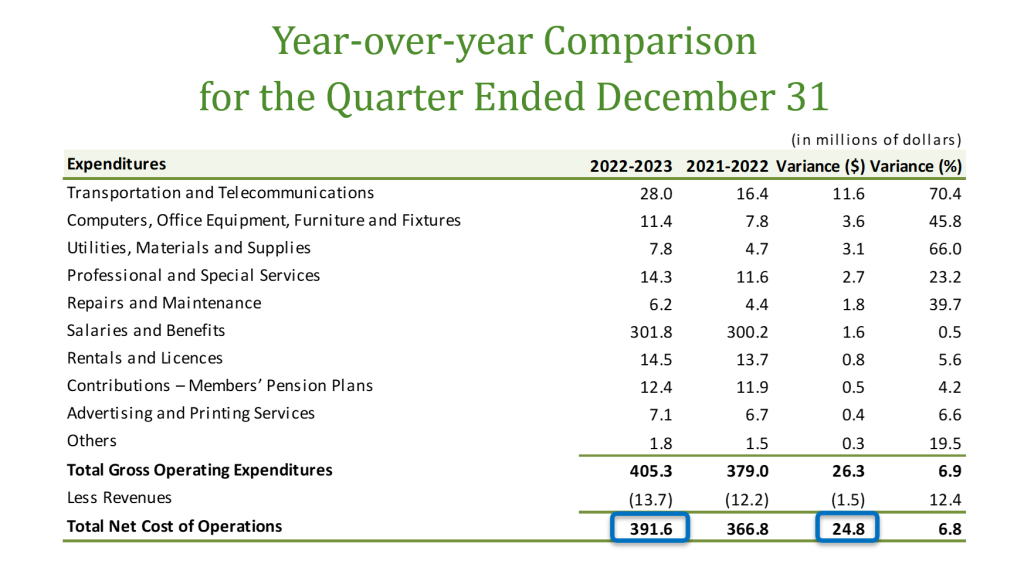





 LICENSING
LICENSING PODCAST
PODCAST ALERTS
ALERTS













